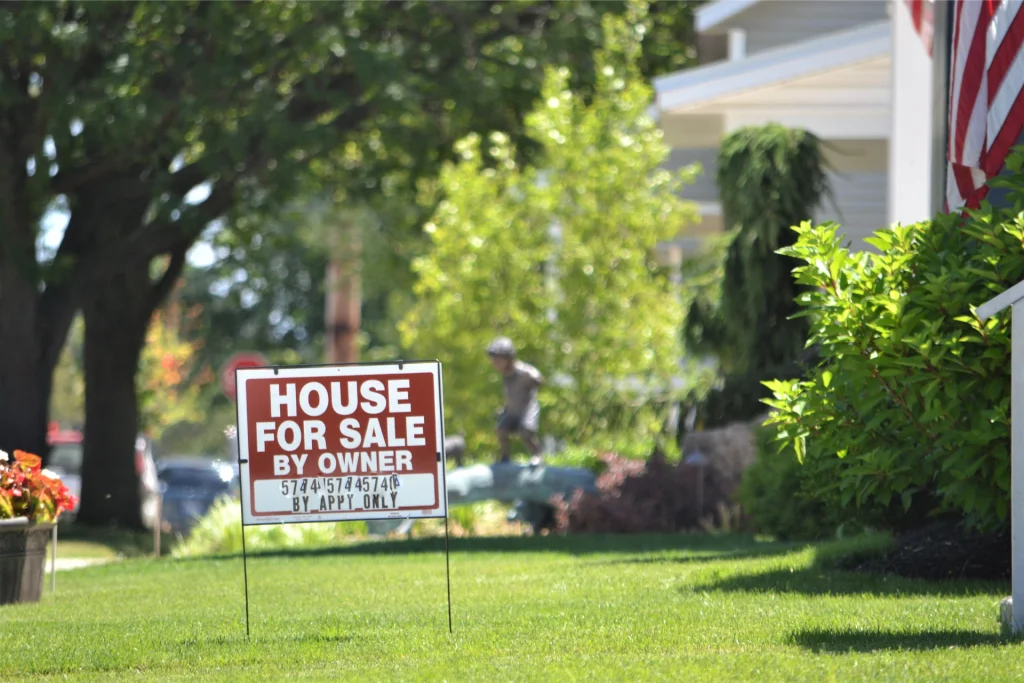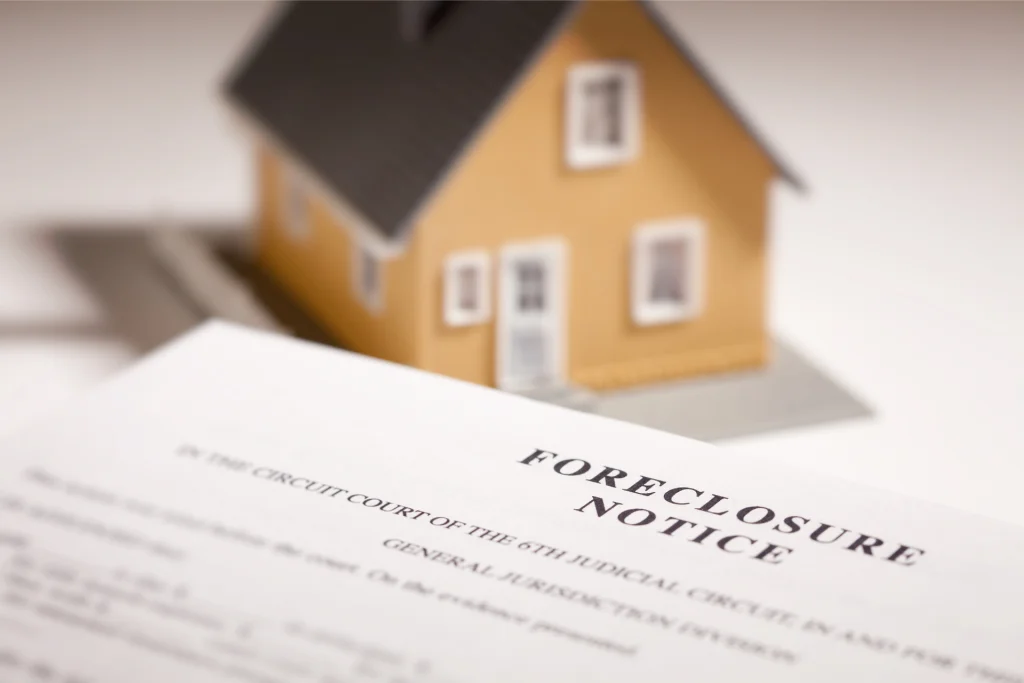Realistically, can you sell your home before it goes into foreclosure? Of course you can, even though it’s probably not how you had envisioned things working out.
The dream of owning a home doesn’t include going through foreclosure. Over the course of time, it might become impossible to keep up with the mortgage payments due to unforeseen circumstances that’s out of your control.
When you’re already struggling with serious financial difficulties, it can be quite devastating to know that the threat of foreclosure is right around the corner. Nobody is immune to bad luck, and you do have choices that can help you avoid foreclosure.
Pre-Foreclosure: The Time to Sell
Before your lender repossesses your home, you can sell it during the pre-foreclosure period, which begins after you’ve missed payments. Despite the anxiety that comes with being in the pre-foreclosure process, selling your property is still a viable choice.
Types of Sales
- Standard Sale: You can sell your home in the real estate market like you normally would when you hire a real estate agent. Most of the time, standard deals have higher prices but take a lot longer.
- For Sale By Owner: You have the option of selling your home directly without the help of a real estate agent or broker. This option has some pros and cons, which we’ll go over later in this article.
- Short Sale: You may be able to pursue a short sale if your mortgage balance is more than what your house is worth. Here, the lender agrees to take a lower amount than what’s owed when you sell the house.
- Cash Buyers: Selling to a cash buyer, be they a real estate investor, a home-buying company like HomeGo, usually guarantees a quick and painless transaction.
Always keep in mind that promptness is of the utmost importance and might interfere with . There are more ways to keep your home than to lose it to foreclosure if you start the process sooner rather than later. When your house is in pre-foreclosure, you need to act quickly to avoid losing too much money and get your life back on track as quickly as possible.
Pros and Cons of FSBO
When thinking about For Sale By Owner (FSBO), weighing the pros and cons can help you make the best decision to meet your needs.
Pros
- Financial Savings: If your home is listed for $300,000, you could save up to $18,000 by foregoing working with a real estate agent, as they typically charge commissions ranging from 5% to 6% of the sale price of a home.
- Price Control: You decide how much your home should be sold for without any input from a real estate agent. In other words, you base your listing price on your own study and knowledge of the local real estate market.
- Direct Negotiations: Since you will be negotiating the deal yourself, you will be able to address the buyer’s worries and work out the terms without the help of a real estate agent.
Cons
- Complex Process: Setting a competitive price, marketing the home well, and going through all the necessary paperwork are just a few of the legal and financial steps that come with selling a home. Without professional help, these steps can be hard to manage.
- Potential for Lower Exposure: Without access to marketing tools like the Multiple Listing Service (MLS) that real estate agents use, you might not reach as many people, which could make your home stay on the market longer.
- Responsibility for Showings: For showings to go smoothly, you need to be able to be reached quickly and have good sales skills.
- Closing Costs: You are in charge of handling and negotiating the closing costs, which can be hard to understand and expensive. Without professional help, you could agree to terms that aren’t good for you and have to pay extra closing fees that you weren’t expecting, which would make the close process more expensive.
- Lengthy Process: When you are approaching pre-foreclosure, time is of the essence. There is no promise that someone will buy your home, which only adds to the stress you’re already under.

For most homeowners, selling their property on their own (FSBO) while in foreclosure is an incredibly risky move. If you want to make sure the deal goes more quickly and safely, you should get help from someone who specializes in these types of transactions.
Keep in mind that the timeline for selling a home in foreclosure can vary greatly, depending on your specific circumstances and the stage of foreclosure your property is in.
- Pre-Foreclosure: You generally have until the home is auctioned off to sell it. This period could last 90 to 120 days or more after you first start missing payments. Utilizing this time efficiently is crucial to avoiding a foreclosure on your credit history.
- Foreclosure Proceedings: If you’re in the midst of the foreclosure process, mortgage companies may be required to give you an extra 30 days, giving you a narrow window to sell. The exact time depends on state laws and the lender’s policies
The type of foreclosure (judicial vs. non-judicial) will depends on your state’s laws. Judicial foreclosures involve the courts and can take longer, giving you more time to sell. If you’re going through a non-judicial foreclosure, you’re going to have to act quickly because you have a shorter timeframe to sell.
That’s why it’s in your best interest to start the sales process as soon as you receive a foreclosure notice (or, better yet, once you realize you’re going to have difficulties making your monthly payments).
Benefits of Selling Your Home Before Foreclosure
If you’re dealing with the stress of a possible foreclosure, selling your house before it happens can offer several benefits. These benefits include:
- Protecting Your Credit: Foreclosure has a severe impact on your credit score. Pre-foreclosure sales may allow you to pay off your outstanding mortgage balance and spare yourself the long-lasting damage to your credit rating that comes with going through a foreclosure.
- Keep Some Control: If you sell your house before it goes into foreclosure, you can have more say over the sale process. Instead of having to follow a court-ordered sale, you can pick when and who to sell to.
- Mortgage Forgiveness: If your home sells for less than what’s owed, the lender may be willing to forgive the difference, which is called a “deficiency.” While not guaranteed, this is something that can be discussed and worked out during the course of the deal.
- Avoiding Extra Fees: You can prevent further legal foreclosure fees and costs that accrue during the foreclosure process by selling during the pre-foreclosure stage.
- Market Value: While sales of foreclosures typically result in lower prices, you may be able to sell your house for a price that is closer to market value.
Alternatives to Selling During Foreclosure
If you are in danger of foreclosure, selling your house isn’t your only available choice. There are a number of options that, depending on your situation, may offer better solutions. There are several possible routes that you need to know about:
- Loan Modification: You can talk to your mortgage company about changing your mortgage details. This could mean getting a lower interest rate, making the payback term longer, or even lowering the amount you owe.
- Repayment Plan: If you’re experiencing temporary financial difficulties, a repayment plan can help. In addition to your normal loan payments, lenders may let you pay off the amount that is past due over a certain amount of time.
- Forbearance Agreement: Under a forbearance agreement, your current mortgage payments are temporarily lowered or suspended. Keep in mind that the missed mortgage payments are usually paid back later.
- Deed in Lieu of Foreclosure: As a last resort, you might choose to voluntarily give your mortgage servicer the deed to your property in order to avoid the foreclosure process.
What Can I Do to Stop the Foreclosure Process?
It is possible to stop the foreclosure proceedings once it’s begun, but you need to act quickly; but, know that your options for ending the process is going to depend on where you are in the foreclosure process and your financial situation. Here are some ways you can stop the foreclosure process.
- File for Bankruptcy: Filing for bankruptcy can put an immediate stop to the foreclosure process. You can keep your home and reconfigure your loan structure and other debts with Chapter 13, whereas Chapter 7 will simply delay the foreclosure, thus giving you a chance to either sell your home or get a loan modification. Be aware that going through the bankruptcy process is also stressful, but it may be the best solution for people in serious financial distress.
- Consult an Attorney: A foreclosure attorney, or even a real estate attorney, may be able to find a way to find legal grounds to challenge the foreclosure. If not, they can go through all of your options and help you decide what’s best for your particular situation.
- Talk to Your Lender: Contact your loan servicer right away and be honest with them so you can look into these choices. If the lender sees that you want to work things out, they may be ready to be flexible. During this tough time, it’s important to take charge of the choices you have.
We can’t stress this enough: time is of the essence when you’re facing foreclosure. When you’re experiencing financial difficulties and fear that foreclosure may be looming, familiarize yourself with your state’s foreclosure laws. NOLO has an easy-to-read chart you can check out to give you a basic look at your state’s legal process for handling foreclosures.

What Happens If I Can’t Sell My House Before Foreclosure?
When your home is foreclosed on, it legally belongs to your lender or to whomever wins it at auction. In most cases, the foreclosure process is followed by the following stages:
- Pre-foreclosure: The mortgage lender can begin the foreclosure process after 120 days of non-payment. You can try to sell your home at this point to avoid default.
- Auction: Your lender may sell your home at auction to the best bidder if you haven’t sold it yet. Once the pre-foreclosure time is over, an auction date is usually set.
- Post-foreclosure: If a house in foreclosure doesn’t sell at auction, the mortgage lender takes it back and subsequently holds it as Real Estate Owned (REO).
Occupancy Rights
Your legal rights will vary depending on where your located. However, you can rest assured that you can remain in your home until the foreclosure process has officially concluded (either it’s sold at auction or the lender retains the title).
Some states have a redemption period which would allow you to reclaim your property under certain conditions. It’s highly recommended to speak a foreclosure defense attorney in your area so you can go over all of your options.
Impact on Credit
Unfortunately, when you go into foreclosure, your credit will take a nosedive. Not only will the foreclosure stay on your credit report as long as seven years, but it will make it much more difficult to get approved for loans and limit your ability to find a new place to live.
Deficiency Judgments
If the proceeds from the sale of the property are not enough to cover the remaining balance on the mortgage, the lenders can file a deficiency judgment against you to make up the difference.
Suppose the house sells for $300,000 but you still owe $400,000 on the mortgage. This implies that you might still be required to pay your lender a $100,000 shortfall.
There are “anti-deficiency” rules in some states that might keep you from having to pay the rest of the debt. In other states, lenders might be able to go after a deficiency ruling against you.
The states with anti-deficiency laws are Alaska, Arizona, California, Connecticut, Hawaii, Idaho, Iowa, Minnesota, Montana, Nevada, New Mexico, North Carolina, North Dakota, Oregon, Washington, and Wisconsin. Again, talk to a foreclosure attorney because some of these states have exceptions to the rule.
When Is It Too Late to Sell My Home During Foreclosure?
The most important time to act when you’re facing foreclosure is the pre-foreclosure stage. This stage officially starts when you receive a Notice of Default (NOD), which is the first step the lender will take in an effort to get you to get caught up on your missed mortgage payments. This is usually sent when you are between 3 to 6 months behind in your payments. During this time, you’ll have a small grace period to either get caught up or sell your home.
If you’ve received a default notice that your property is going on the foreclosure auction block, it’s usually too late to sell your home via the traditional route. This is why it’s imperative to do your best to sell your home or go over your options the moment you receive a foreclosure notice.
Good news though, some states offer a redemption period after your home is foreclosed on. The redemption period doesn’t give you much time to sell your home or pay the foreclosure sale price (plus any additional fees like interest, HOA fees, property taxes, etc.).
Due to having a very small period of time to act, selling your home a company like HomeGo could be your saving grace. By working with HomeGo, you can receive a same-day offer to buy your home. We can even close the sale in as little as 7 days and provide a lease-back option while you look for your next home. HomeGo provides a solution to sell your house for cash before foreclosure and benefits you in the following ways:
- You don’t have to spend time or money on costly repairs because we buy homes in as-is condition.
- We save you the time and stress associated with listing your home and waiting for qualified buyers.
- HomeGo purchases homes with our own money, so the sale will not fall through.
- HomeGo never charges commissions, closing costs, or fees.

Tips for Selling Your House Quickly Before Foreclosure
You need to act fast if you want to try to sell your home before your bank forecloses on it. The first thing you need to do is research home sales in your neighborhood. Knowing what other homes in your area have recently sold for will give you a better idea of the fair market value of your home.
In most cases, homeowners will need to sell quickly, so consider listing the starting price lower than comparable home prices in your area. However, listing your home is rarely the fastest option and it may be off the table completely if you’re trying to sell your house before foreclosure.
In this situation, a cash buyer is likely your best option. Cash home buyers, such as HomeGo, will purchase your home as-is and can close in as little as 7 days. That way, you can wash your hands of the situation and move on.
With foreclosure around the corner, you likely don’t have the time or the emotional capacity to deal with the stress of getting the home ready to be placed on the market or waiting for potential buyers.
Time Is of the Essence When You Are Being Foreclosed On
Under federal law, banks and mortgage servicers cannot initiate foreclosure proceedings until you have fallen at least 120 days behind in mortgage payments. That doesn’t give you much time to sell if you’re hoping to be out of the home before foreclosure takes place.
HomeGo understands you’re going through a difficult time, and we want to help. We have a compassionate goal to help homeowners and will work with your particular situation. We want to help you move out and move on quickly. Please contact us today to learn more about our services or to schedule a walk-through.




